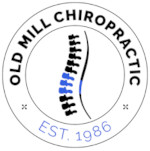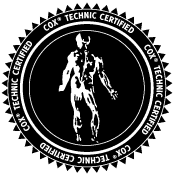Helpful St Peters Chiropractic Tips for Managing and Preventing Lumbar Disc Degeneration: Aspirin, Chiropractic, Nutrition
Lumbar disc degeneration is a condition that impacts millions globally and many here in St Peters, often leading to persistent discomfort and reduced mobility. This occurs when the intervertebral discs—the padding structures between the vertebrae—start to deteriorate due to factors such as aging, repetitive strain, or injury. Symptoms may range from lower back pain and stiffness to nerve-related issues like sciatica, considerably affecting quality of life. Effectively managing lumbar disc degeneration focuses on alleviating pain, improving function, and preventing further progression. In this blog, we explore evidence-backed treatment options, including aspirin, chiropractic care’s spinal manipulation, and supplements like chondroitin sulfate, to help you grasp just how these approaches help improve spinal health for you, our St Peters chiropractic patient at Old Mill Chiropractic.
ASPIRIN, PAIN MANAGEMENT AND DISC DEGENERATION
Aspirin, a widely used nonsteroidal anti-inflammatory drug (NSAID), is manytimes recommended to manage back pain related to disc degeneration. By targeting inflammation, aspirin grants temporary relief, helping to reduce discomfort and improve mobility. However, it’s important to recognize that while aspirin can alleviate symptoms, it does not fix the underlying structural issues contributing to disc degeneration. Long-term use of NSAIDs like aspirin may have risks, like gastrointestinal irritation or the masking of progressive deterioration. (1) For this reason, experts suggest integrating aspirin as part of a broader, comprehensive treatment plan. When combined with other therapies, it can be helpful.
CHIROPRACTIC CARE: A NON-INVASIVE OPTION FOR DISC DEGENERATION
Chiropractic care, particularly techniques like spinal manipulative therapy (SMT) and the Cox® Technic, has shown significant values in managing lumbar disc degeneration. Research demonstrates that Cox® Technic SMT can reduce intradiscal pressure by as much as -192 mmHg and widen the spinal canal area by up to 28%, forming an environment conducive to natural healing and lowering nerve compression. (2) One of the key advantages of chiropractic care is its non-invasive approach. Techniques such as flexion distraction—a gentle and controlled movement of the spine by a well-trained chiropractor like yours at Old Mill Chiropractic—help restore motion, ease pain, and improve overall spinal health. Studies show that patients undergoing flexion distraction often note remarkable pain relief after an average of 12 visits within approximately 29 days. (3) A recent study published in Cureus reveals that spinal manipulative therapy, particularly Cox® Technic, can induce measurable changes in intervertebral disc composition, as observed through magnetic resonance spectroscopy, offering encouraging insights for managing lumbar discogenic pain. (4) These findings highlight the potential of non-invasive chiropractic in addressing chronic lower back discomfort as well as being a safe and effective option in the overall treatment plan.
CHONDROITIN SULFATE IN SUPPORTING SPINAL HEALTH
Chondroitin sulfate, a naturally occurring compound found in cartilage, is a well-researched supplement for addressing degenerative spinal conditions. It helps cartilage retain water, enhancing its shock-absorbing properties and supporting overall disc health. By boosting spinal flexibility and reducing inflammation, chondroitin sulfate may also slow the progression of degeneration over time. (5) When paired with chiropractic care, chondroitin supplementation can deliver complementary benefits. This combined approach helps address both the structural and nutritional needs of the spine, stimulating long-term health and mobility.
CONTACT Old Mill Chiropractic
Listen to this PODCAST with Dr. Nike Taylor on The Back Doctors Podcast with Dr. Michael Johnson as she illustrates chronic low back pain relief for her patient with The Cox® Technic System of Spinal Pain Management.
Managing lumbar disc degeneration demands a thoughtful, multi-faceted approach designed just for you. While treatments like aspirin can deliver immediate relief, chiropractic care and chondroitin sulfate offer meaningful, long-term advantages by addressing the root causes of degeneration.


